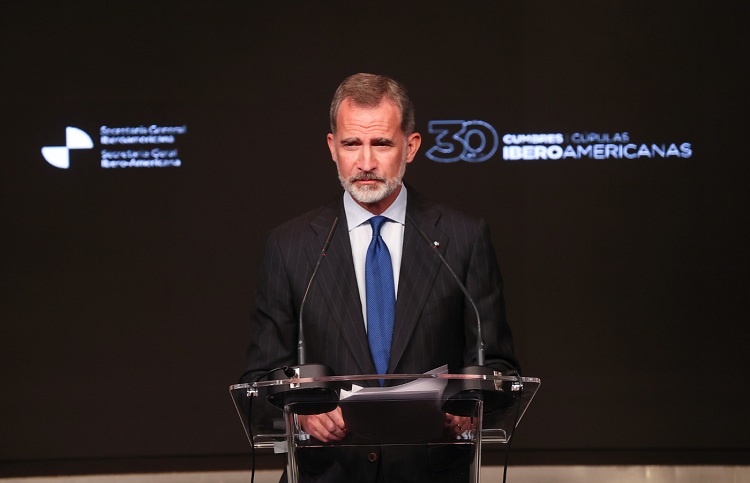The Diplomat
The elections of last November 7 in Nicaragua and the withdrawal of accreditation to five journalists of the Efe agency in Cuba were the two major “Spanish” chapters of the EU Foreign Affairs Council, held yesterday in Brussels.
“Nicaragua has been one of the points, at the Spanish proposal”, declared the Minister of Foreign Affairs, José Manuel Albares, in the press conference after the Council. “The EU statement pointing to the lack of legitimacy of the electoral process and the results has been a first and necessary response”, but “others must follow, and, specifically, I have requested that the procedure be initiated to apply new individual sanctions and that the EU demand the immediate release of political prisoners, of those people who were put in prison exclusively so that they could not compete in what were called elections“, added the head of diplomacy.
Upon his arrival at the Council, Albares told the press that the EU was going to approve in its meeting yesterday new sanctions against “some citizens” of Daniel Ortega’s regime, but European sources consulted by the Europa Press agency later specified that the measures must still pass through the Council’s technical groups before their approval and that, in any case, the unanimous support of the Member States is expected.
Last October 17, the EU Foreign Affairs Council asked the High Representative for Foreign Policy, Josep Borrell, to start preparing a possible “third round” of sanctions against the Nicaraguan regime, including the “entourage of President Daniel Ortega”, in view of the possibility of “electoral fraud” in the general elections. On that occasion, as Albares declared at the time from Luxembourg, Spain led, “once again, the position in the EU” and contributed to create “a consensus” on this matter. The day after the elections, Albares described the elections as a “mockery of democracy”.
Two days before the Luxembourg meeting, the EU Council had extended for one year, until October 15, 2022, the selective restrictive measures imposed on Nicaragua. The sanctions regime was first introduced in October 2019 against individuals and entities responsible for human rights violations or abuses and for undermining democracy and the rule of law. Sanctions currently apply to 14 individuals, including Vice President and First Lady Rosario Murillo.
Cuba
On the other hand, Albares also brought to the EU Foreign Affairs Council yesterday the Cuban government’s decision to withdraw accreditation from Efe Agency journalists in Havana. “I have raised the right to demonstrate freely and to freedom of expression in any country, including Cuba, and I have pointed out how unacceptable it is that the accreditation of five journalists from the Efe agency has been withdrawn,” the minister said at the press conference.
“The truth is that, in this matter, as in that of Nicaragua, what there has been is solidarity around the table and, of course, there has been no opposition regarding the request,” he continued. “The high representative, moreover, is a person who has a high sensitivity in both cases and had already expressed himself publicly, both in the case of Cuba and in the case of Nicaragua,” he added.
In this regard, Borrell yesterday made “an appeal to the Cuban authorities to guarantee freedom of expression and freedom of the press”, and warned that the withdrawal of the credentials “is one more step to stop the flow of open and truthful news from the island”. Likewise, the high representative and former Spanish Foreign Minister assured that the European Union “will continue to defend the role of independent and reliable media worldwide in order to safeguard media freedom and pluralism.”
Yesterday’s Foreign Affairs Council also approved the modification of the Belarus sanctions regime in response to “the instrumentalization of human beings carried out by the Belarusian regime for political purposes” on the border with Poland. “The political instrumentalization of migration is unacceptable in this case and in any other case,” said Albares, who specified that the EU had “agreed to extend the sanctions on Belarus to include persons and entities involved in the organization of illegal border crossing.”







